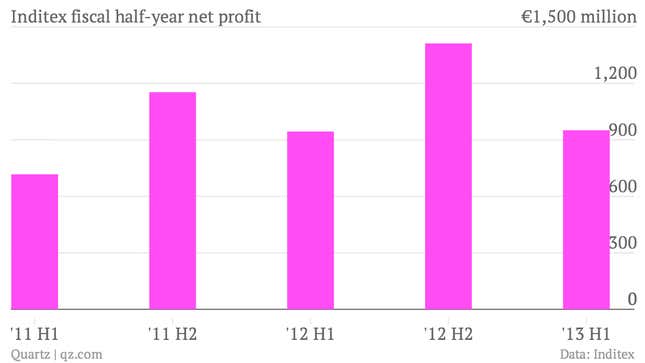
The numbers: ”Satisfactory,” according to Inditex executives. Net profit in the Spanish retailer’s fiscal first half (the six months to July) rose by 1%, to €951 million ($1.3 billion). Analysts expected a small decline. Markets cheered the results; the company’s share price flirted with all-time highs at the open.
The takeaway: The owner of Zara continues to reduce its exposure to the weak Spanish economy, which now accounts for 19% of group sales, down from 22% in the same period last year. The company opened 95 stores in 40 different countries over the past six months. Chief executive Pablo Isla touted the company’s “global multi-concept, multi-channel growth” as its main source of strength, highlighting the start of online sales in Russia in August and the expansion of its flagship Zara store in Beijing, which now covers a whopping 3,500 square meters (37,674 square feet).
What’s interesting: Inditex may be less keen on Spain as a sales venue, but the fast-fashion pioneer relies on its home country as a production base more than ever. It has spent €450 million on bolstering its operations in Spain so far this year, creating 1,500 sorely needed jobs in a country with a 26% unemployment rate. And although Isla says the company’s global footprint makes it “not a very good macro proxy” for the Spanish economy, the chief executive told analysts on a conference call that he sensed better times ahead for Spain: “What I can tell you is that some indicators are starting to show signs of a recovery in the Spanish economy. Yes, that is the case.”